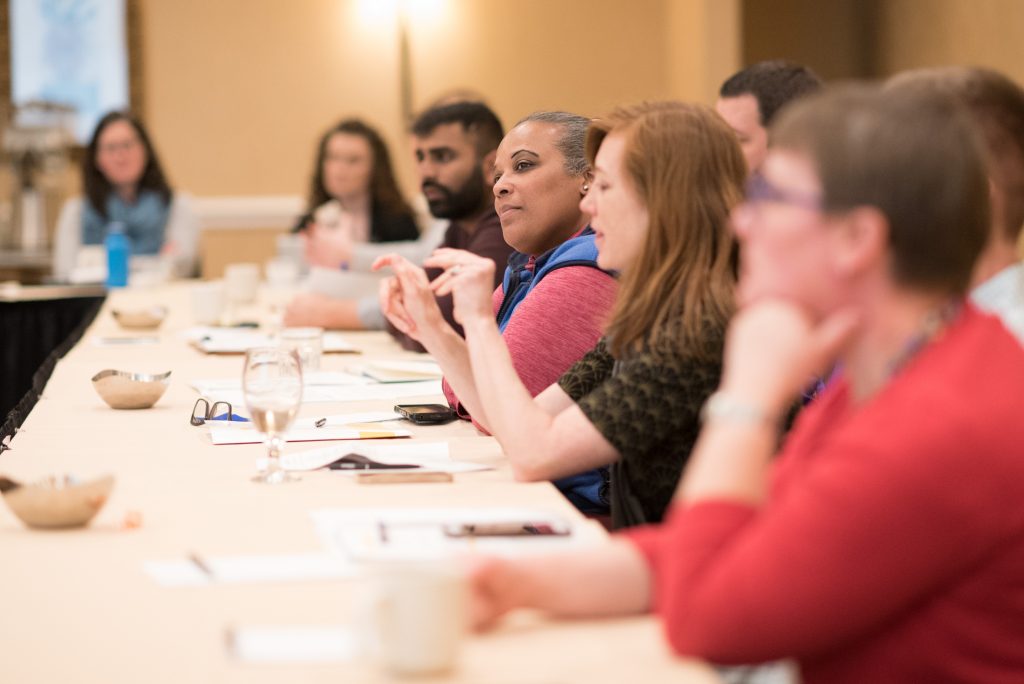Power of Partnerships Q&A with the Institute for Market Transformation

On June 1st, Bloomberg Philanthropies launched the American Cities Climate Challenge, an opportunity for 20 ambitious cities to significantly deepen and accelerate their efforts to tackle climate change and promote a sustainable future for their residents. The program specifically focuses on finding solutions with 2020 targets in the buildings and transportation sectors, which together make up the bulk of most cities’ carbon pollution and are areas over which local governments exercise significant authority. Applications are open to the 100 most populous cities until July 18th and Challenge winners will receive a robust technical assistance support package worth $2.5 million per city featuring some of our best-in-class partners like the Institute for Market Transformation (IMT).
To highlight some of the technical expertise offered, we’re featuring a Q&A series with some of the Challenge partners. Below, IMT’s Julie Hughes – who serves as director of the City Energy Project and will serve as a strategist on building energy efficiency for the Challenge – shares her thoughts on why your city should apply to the Climate Challenge.
Q: What’s one reason cities should apply for the Challenge?
A: Cities whose ambitions go beyond commitments, who have engaged in thoughtful planning, who aren’t afraid to tackle the hard stuff, who are willing to roll up their sleeves to achieve measurable impact – these are the cities I believe will thrive in the Challenge.
I’ve worked in two city governments – Baltimore and New York City – and have worked with dozens of other cities through the City Energy Project and our partnership with the Urban Sustainability Directors Network. Although every city is different, some consistent traits of City staff inspire me: they’re ambitious, creative, passionate, innovative, tireless, and above all, committed. They work in local government because that’s where the action is. They’re also on the constant prowl to identify strategies other cities have tried – so they can copy what’s worked and avoid what hasn’t. The Challenge will enable participants to refine and share strategies with their equally ambitious peers; to accelerate implementation of proven solutions while deploying their creativity to find new ones; and to take immediate action to reach their goals.
Q: What expertise will you bring to the Challenge?
A: For many cities, the energy attributable to buildings is responsible for up to 75 percent of the city’s emissions. Challenge participants have acknowledged that they can’t ignore this sector, but it’s one of the trickier ones to address. IMT will deliver technical support to cities – helping them achieve deeper, quicker energy savings across their built environments. We’ll help Challenge cities mobilize policies and programs, and will work with cities outside the Challenge, spreading best practices through the Urban Sustainability Directors Network.
IMT has a long track record – over 20 years – of delivering thought-leading ideas and technical assistance that improves the energy efficiency of buildings. We’re focused on creating a market in which efficient buildings are valued, desired, and abundant. We work with both the public and private sectors, acknowledging that while policy is an absolutely crucial tool for moving the market, we will move faster and farther with the engagement and participation of the private sector.
Q: What’s the most exciting trend happening in cities today?
A: I get excited about data – particularly about using it to not only inform commitments but to drive action and planning in reaching them. These days, I’m in good company. Cities are not only being bold and visionary in their commitments; they’re being strategic and pragmatic, developing and implementing plans in a data-informed method. It’s essential. We can’t afford to take steps that we think will achieve our climate goals. We need confidence in our approaches; we need to deliberately choose actions based on strong data. And as we begin to implement those actions, we need high quality data to measure impact and ensure we’re on track; and if we determine we’re not on track, we can quickly pivot, innovate, and redirect our strategy.
Catch up on part one of the Power of Partnerships Q&A series with Kimi Narita of the Natural Resources Defense Council